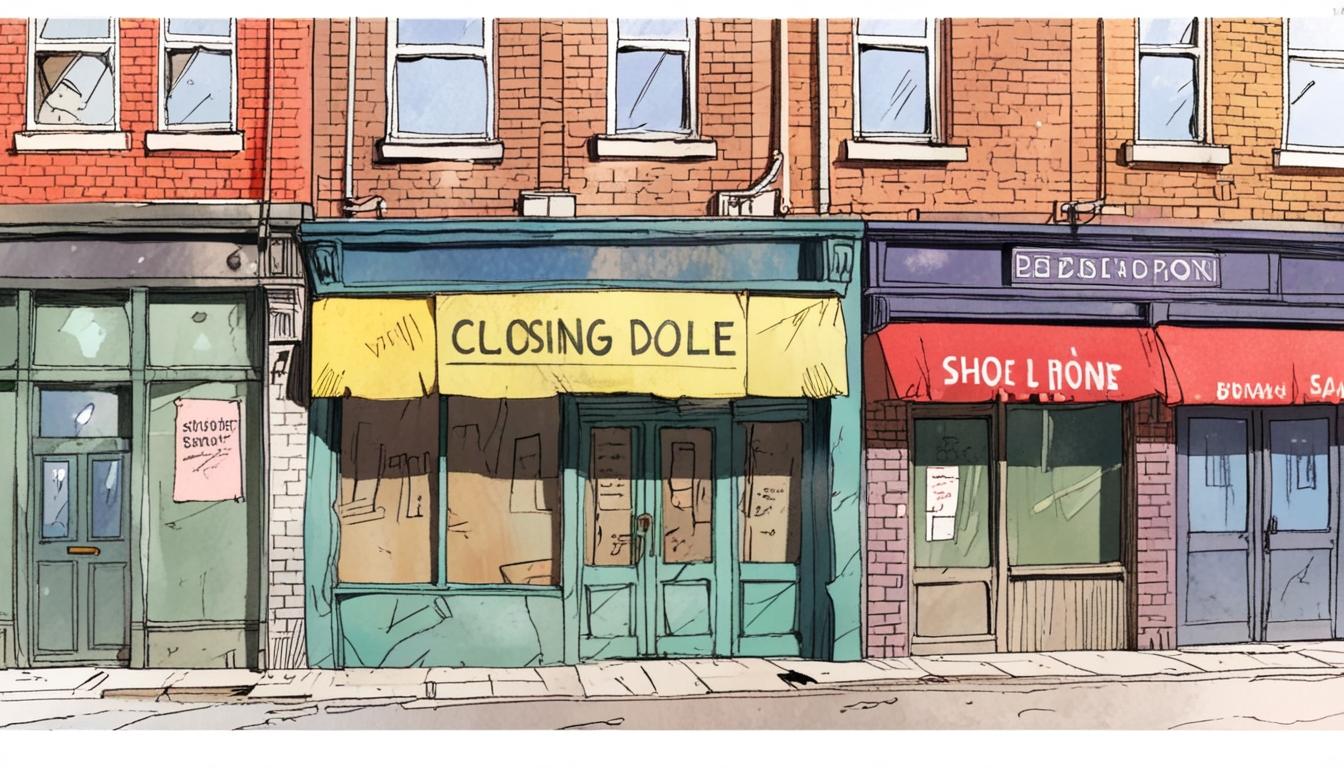Recent reports reveal that three major British retailers are facing severe cyber attacks, compounding the already dire situation on the high street. This crisis emerges amid mounting economic pressures exacerbated by the recent Budget introduced by Labour’s new government. Retailers are expressing confusion and frustration as they attempt to cope with burdensome increases in National Insurance contributions and the scrapping of essential business rate reliefs.
The retail sector, already precarious since the COVID-19 pandemic and soaring energy costs, now teeters on the edge. Stakeholders are incredulous, with many decrying the government’s policies as 'perplexing, flabbergasting, and angering.' In this environment, there are urgent calls for a government reboot that prioritizes the survival of struggling high streets. Proposed solutions, such as reinstating free parking and targeted business rate relief, are seen as essential lifelines.
The plight of retailers is starkly illustrated by the recent closure of Beales, a storied department store chain with 140 years of history. As it conducts a 'closing down sale' at its last branch in Bournemouth, Chief Executive Tony Brown hasn’t held back in blaming Labour’s short-sighted policies for a staggering loss of £200,000. In scathing terms, he remarked, "Labour has used business as an ATM. There’s not a business person who'll say otherwise. It has done damage beyond repair."
Small business owners voiced their frustrations in a meeting with Treasury Minister James Murray when they highlighted the consequences of rising costs on their livelihoods. Jane Robineau, a small business owner, expressed deep concern about the prospect of another four years under Labour, calling for substantial cuts to corporation tax. "I pay 25 percent just like larger firms," she said, implying that policies should be reformed to alleviate the burden on small enterprises.
In Derbyshire, Andrew Massey, who manages a family-owned DIY store, reported an additional financial burden of £90,000 due to the new Budget. He lamented, "It seems private businesses are being hammered while we are the building blocks of the economy," a sentiment that resonates as these costs are inevitably passed on to consumers, threatening inflation's rise.
Michael Hughes, who runs a clothing shop along the Pembrokeshire coast, is feeling the strain from increased National Insurance contributions, particularly after suffering a cut in business rate relief. His situation exemplifies how overregulation is stifling the recovery of hardworking retailers, making it harder for them to stay afloat.
Andrew Goodacre, head of the British Independent Retailers Association, articulated the collective outrage, critiquing a government that came to power promising revitalization for high streets, but instead is making them increasingly costly to operate. He called for a return to free, time-limited parking, deriding local councils for prioritizing revenue over community health.
David Hale of the Federation of Small Businesses emphasized the emotional stakes for those invested in local markets, stating that the current atmosphere is a far cry from the growth agenda that was supposedly promoted during the election campaign.
As retail sales dwindle for the seventh straight month, the British Retail Consortium has raised alarms regarding the ramifications of recent government actions. Chief Executive Helen Dickinson warned that Labour's decision to lower the earnings threshold for National Insurance contributions could lead to a staggering 130,000 part-time jobs disappearing over the next three years—on top of the 200,000 already lost since 2018, a grim forecast for an industry teetering on the brink.
In tandem with these hurdles, the impending introduction of a new packaging levy is estimated to burden retailers with an additional £2 billion in costs. The Confederation of British Industry anticipates that the decline in retail sales will persist, predicting further drops in the months ahead. Louise Hellem, the federation’s chief economist, highlighted the cumulative strain from years of challenges, indicating that new workers' rights legislation could pile on an extra £5 billion in costs.
With economic pressures mounting and retailers grappling with both immediate and long-term obstacles, the outlook for British high streets has never been more precarious. Such circumstances underscore the urgent need for a decisive shift away from the current government’s detrimental policies.
Source: Noah Wire Services
